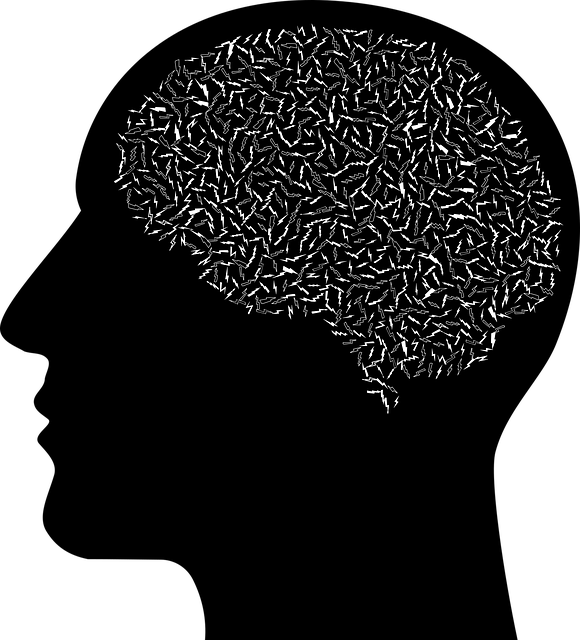Evaluating mental wellness programs like the Aurora Postpartum Depression Therapy requires a blend of quantitative data (using tools like PHQ-9 and GAD-7) and qualitative participant feedback (through interviews or focus groups). This dual approach ensures robust Mental Health Policy Analysis, tailored to individual needs. By actively listening to participants' experiences, researchers can identify program strengths and areas for improvement, reduce stigma, and enhance overall well-being. Long-term evaluation should assess emotional intelligence, inner strength, and access to ongoing coaching, focusing on resilience and adaptive coping strategies rather than just immediate results. This holistic approach reveals the program's lasting positive impact on participants' lives, including improved relationship satisfaction and navigation of life's challenges.
Mental wellness program evaluations are essential for understanding their impact and effectiveness. This article explores critical assessment methods, focusing on Aurora Postpartum Depression Therapy’s unique approach. We delve into metrics and tools used to gauge program success, examining participant feedback and experiences that shape perceptions of care. Additionally, we discuss long-term impacts and sustainability, highlighting how these factors contribute to measuring the overall success of mental health interventions like Aurora Postpartum Depression Therapy.
- Assessing Program Effectiveness: Metrics and Tools
- Participant Feedback and Experience: Voice and Perception
- Long-term Impact and Sustainability: Measuring Success Beyond Intervention
Assessing Program Effectiveness: Metrics and Tools

Evaluating the effectiveness of mental wellness programs is crucial to understanding their impact on participants’ lives. When assessing the success of initiatives like Aurora Postpartum Depression Therapy, several key metrics and tools can be employed. Quantitative methods involve tracking changes in standardized assessment scores, such as the PHQ-9 (Patient Health Questionnaire) for depression symptoms or the GAD-7 (Generalized Anxiety Disorder 7-Item Scale) for anxiety. These tools measure improvements over time, providing concrete data on program effectiveness.
Additionally, qualitative methods offer insights into participants’ experiences and perceptions. Semi-structured interviews or focus groups can gather rich narratives about individuals’ journeys with stress management and self-awareness exercises, shedding light on the program’s influence on their mental health and overall well-being. Integrating these quantitative and qualitative approaches allows for a comprehensive Mental Health Policy Analysis and Advocacy, ensuring that program evaluations are robust and tailored to the unique needs of participants.
Participant Feedback and Experience: Voice and Perception

Participant feedback is an invaluable component of evaluating mental wellness programs, particularly when focusing on postpartum depression therapy like Aurora Postpartum Depression Therapy. By actively listening to and considering the voices and experiences of those who have undergone the program, researchers and practitioners gain profound insights into its effectiveness. This qualitative data can reveal how participants perceived their journey, what aspects of the therapy were most beneficial, and where improvements could be made.
Encouraging open dialogue and creating a safe space for individuals to share their stories helps reduce the stigma surrounding mental illness while fostering a sense of community. In light of this, mental wellness programs should integrate mechanisms for regular feedback collection, such as post-therapy interviews or surveys. These tools not only enhance program quality but also contribute to broader mental illness stigma reduction efforts and burnout prevention strategies for healthcare professionals. Moreover, risk management planning can be enhanced by understanding participant experiences, ensuring the well-being of both clients and practitioners.
Long-term Impact and Sustainability: Measuring Success Beyond Intervention

The true measure of a mental wellness program’s success lies not just in its immediate outcomes but in the long-term impact and sustainability it fosters. Evaluating programs like Aurora Postpartum Depression Therapy requires looking beyond the initial intervention to understand how they contribute to lasting change. By measuring participants’ emotional intelligence, inner strength development, and their ability to access ongoing mental wellness coaching programs, researchers can assess the program’s effectiveness in promoting resilience and adaptive coping strategies.
This holistic approach recognizes that mental health is a dynamic process that evolves over time. Success should be gauged by improvements in overall well-being, relationship satisfaction, and an individual’s capacity to navigate life’s challenges with grace and equilibrium. Ultimately, a robust evaluation method for mental wellness initiatives should reveal not just short-term relief but also the program’s lasting positive influence on participants’ lives.
Evaluating mental wellness programs is paramount, especially for initiatives aimed at addressing perinatal mood disorders like postpartum depression. Utilizing a multi-faceted approach that incorporates participant feedback, specific metrics, and long-term tracking, we can accurately measure the success of programs such as Aurora Postpartum Depression Therapy. By assessing both short-term improvements in symptoms and the lasting impact on participants’ lives, we ensure these interventions are not only effective but also sustainable, ultimately fostering better mental health outcomes for new mothers and families.












